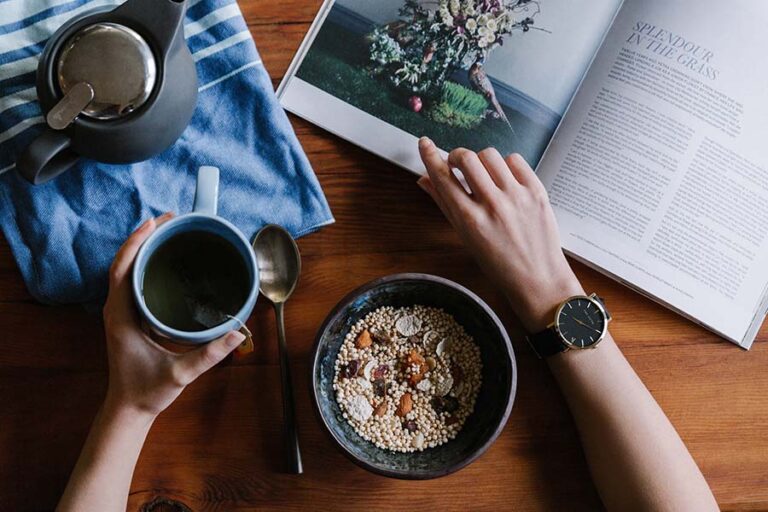Twenty seven.
That’s how many dirty dishes there were after I prepared lunch and pre-made dinner this past Sunday.
A pot
A pan
A large bowl
The Miomat (Yes, you need one. Use my code OHHILAURA for $15 off!)
2 knives
2 coffee cups
A glass of green tea
A spatula
A brush (You know, the kind you brush oil onto food with? I should probably learn what those are called.)
The blender
A cutting-board
Two toddler bowls
4 spoons
6 measuring cups (Yes, six. No, I don’t know how.)
2 small mason jars
This is why people don’t cook at home. This is why people don’t get enough vegetables. This is why people eat frozen dinners and cereal from boxes, and this is why I don’t blame them.
I don’t blame, but I don’t accept it either.
My daughters’ quality of life depends on them loving to cook. It depends on them making time to cook. It depends on them knowing that the colossal mess is a means to a worthwhile end.
Parenting can feel like it’s about keeping tiny humans alive and getting them to do what they are supposed to do, and keeping them from doing what they aren’t supposed to do. But I don’t just have to get my toddlers to eat piles of vegetables and whole grains, I have to raise adults who do the same. I have to raise adults who choose to cook at home, and minimize their alcohol consumption, and say no to sugar because it wrecks the microbiome their mama worked so hard to build.
You and I both know that, unless I plan to keep them locked in my house like prisoners of the vegetable garden, this is probably an impossible. Either their curiosity about Taco Bell and tequila will lead them astray, or the 27 dirty dishes will do them in.
And so, on day two of 2022, when I should have been meal prepping and researching the 2,172 alternatives to sugar, I was freaking out about what happens 16 years from now when my daughters are free to pick up and move out and stuff their faces with burritos and beer.
For the last two days, I’ve spent hours upon wee morning hours scouring the internet for research on how to ensure my turnip-eating toddlers grow into arugula-loving adults.
Some of what I found made me feel as hopeless as Jack Dawson about to drown in the Atlantic.
A 2011 study on the impact of childhood circumstances on health later in life compared children England to children in the U.K. and found children with low birthweight (check) and chronic conditions (check, check) had worse health as adults. This study also found that American children are usually less healthy adults than English children. Shocking, I know.
A 2021 study from the University of California Riverside about the lifelong impact of childhood diet compared the microbiome of rats fed a western diet to that of rats fed a “healthy” diet.
I was hoping this study would give me an idea of the long-term impact of a healthy diet in childhood, even when children grow up to drink gin and juice (be it separately or together). It didn’t.
All I got was the same “Western diet kills the biome” story I already knew.
Unlike Jack Dawson, left to die unnecessarily, I found someone (read: research) to save me from a completely preventable drowning.
A 1998 study about the effect on childhood diet on adult health states, “nearly all food preferences are learned via children’s early experience with food and eating.”
This study also found that breast-fed infants (check) seem to more readily accept new foods, and that an environmentt that gives kids opportunities to learn to like high-fat, energy-dense foods and few opportunities to learn to like whole grains, fruits, and veggies could be obesigenic. (Read: could be the problem).
This study also had some great content about feeding practices: gone are the days of “clean your plate,” and “eat your veggies and you can watch tv.”
It did, unfortunately, fall short when it comes to the long-term effects of those food preferences.
So, I found a lot of evidence that our plant-based, whole food diet is the right way to go about this, but I found not a shred of guarantee that my daughters will grow up to pass on the pork rinds and Pimm’s Cup when presented with the opportunity.
This is parenting, and that whole prisoners-of-the-vegetable-garden vibe is looking better and better.

